
Candobetter.net recently received a review copy of Hillary Clinton’s
Hard Choices, Simon & Schuster, 2014. Curious, I opened it at the chapter on “Syria: A wicked problem.” It was interesting to have a document from the horse’s mouth, or the US Secretary of State, Hillary Clinton. Her style as a US Secretary of State dealing with foreign affairs reminded me of an old-fashioned psychiatrist’s unimaginative confirmation of problems in any patient they are sent, where, even if the patient is quite sane, she’s going to find them insane. Note: Some clarificatory changes have been made to text since yesterday's first publication.

Clinton on Syria
Dismayingly, but not unexpectedly, in her writing, Clinton shows little knowledge, interest in, or respect for Syria. In summary, she tries to justify the anti-Assad US position with the alleged brutality of Assad based on two mantras:
1. Bashar Al-Assad’s father’s massacre in Hama in 1982. (No context supplied).
2. Saudi Prince Saud’s [1] opinion that Bashar was being led by his mother to follow his father’s brutal example in Hama (repeated twice in this chapter).
The only other rationale she provides in this chapter dedicated to Syria is shockingly unsustainable and unsustained, that:
”Most predominantly Sunni Arab countries, especially Saudi Arabia and the other gulf states, backed the rebels and wanted Assad gone.” (p. 450)
Frenemies [2] of the United States
She does not explain here why these states desire this end nor why their desires mean so much to the United States. That is not saying a lot. The Gulf states and Saudi Arabia and Qatar in particular have no moral credibility as political states at all. Saudi Arabia particularly, has been continuously documented for institutionalised murder, cruelty, injustice, slavery and abuse of women. It is a huge and rigid monarchy, utterly repressive, of women, prisoners and religious differences and presiding over slavery and abject poverty, despite the multi-nodal royal family’s extraordinary oil-wealth. Regarding Qatar, although women can now vote there, they are segregated from most public activity and wear hijabs and similar clothing. It is known as a ‘slave state’ for the way it treats the massive immigrant population who outnumber its own citizens, and is currently the target of a coordinated protest at the treatment of imported workers on the next World Cup.
As well as failing to justify the US alliance with these gulf states, Clinton admits that she knew that those Gulf state NATO allies were channelling arms into the extremist ‘rebels’:
”It wasn’t a secret that various Arab states and individuals were sending arms into Syria.” (p.461)
These war-mongering countries are members of the Arab League. Clinton writes as though she used the Arab League as her negotiating point of departure. The Arab League has very little credibility. It is infamous for its Western stooges. It contains a London-based representative of the so-called Free Syrian Army, but no representative of the Syrian Government.
So it’s no surprise when Clinton says that, “[…] in October 2011, the Arab League demanded a cease-fire in Syria and called on the Assad regime to pull its troops back from the major cities, release political prisoners, protect access for journalists and humanitarian workers, and begin a dialogue with the protestors. “ […] ”Assad nominally agreed to the Arab League plan, but then almost immediately disregarded it.” In December, they ”tried again.”
This time they sent Arab monitors to war-torn Syrian cities. Not surprising either that this did not go down well; it inflamed the situation.
”In late January 2012, the Arab League pulled the observers out in frustration and asked the UN Security Council to back its call for a political transition in Syria that would require Assad to hand over power to a Vice President and establish a government of national unity.” (p. 450.
This bizarre proposal came from Syria’s traditional enemies, backed by the United States which had no business in the area at all! Of course the Syrian government did not comply.
The only sense I can see in such a doomed demand is that it might be massaged by a complicit or ignorant mass media into an excuse to step up international hostilities against Syria. That is in fact what seems to have transpired, with the White House promoting the script.
Ignoring the secular nature of Syrian civil society and government, Clinton uses the sectarian argument familiar to us with the US invasion of Iraq, which was also secular, that the Assad ruling clique is composed of Alawites over a Sunni majority. Although, in passing, she notes that the French engineered this after World War II, but does not say why the US should try to reverse this now and does not say how Syria managed for so long before colonisation and before the United States ever existed. She does not acknowledge the sophisticated tribal nature of Syrian society and, with her very narrow socio-economic philosophical base, would be most unlikely to recognise the value of this. [3] She evidently subscribes to the myth that anything at all is justified in her goal of transforming all polities into capitalist free markets, which the US/NATO call ‘democracies’ – erroneously, in my opinion. [4]
Clinton, Russia and Syria
After reading Clinton’s chapter on Syria, I switched back to an earlier chapter on “Russia: Reset and regression,” seeking a heads up re her view of Russia and found it in this infantilising statement:
“To manage our relationship with the Russians, we should work with them on specific issues when possible, and rally other nations to work with us to prevent or limit their negative behaviour.” (p.228)
Throughout the Syria chapter Clinton describes Russia’s attitude, mostly quoting the Russian foreign minister, Lavrov. Although one senses that Clinton is trying to make herself look good, for me, she only succeeds in making herself look ridiculous, with Lavrov coming off looking like a genius talking to a moron. Look at the following quote, direct from Clinton’s pages:
”The Russians were implacably opposed to anything that might constitute pressure on Assad. The year before, they had abstained in the vote to authorize a no-fly zone over Libya and to take ‘all necessary measures’ to protect civilians and then chafed as the NATO-led mission to protect civilians accelerated the fall of Qadafi. Now, with Syria in chaos, they were determined to prevent another Western intervention.”
She writes,
”Assad’s regime was too strategically important to them.”
Like, it wasn’t important for the United States too?
And,
"Libya was ‘a false analogy’, I argued in New York. The resolution did not impose sanctions or support the use of military force, focusing instead on the need for a peaceful political transition. Still the Russians weren’t having any of it.”
“I spoke with Russian Foreign Minister Sergey Lavrov […] I told him we needed a unified message from the international community. Moscow wanted the resolution to be tougher on the rebels than on the regime. Lavrov pressed me on what would happen when Assad refused to comply. Would the next step be a Libya-style intervention?
No, I responded. The plan was to use this resolution to pressure Assad to negotiate. ‘He’ll only get the message when the Security Council speaks with one voice. We have gone very far in clarifying this isn’t a Libya scenario. There is not any kind of authorization for force or intervention or military action.’
[…] ‘But what is the endgame?’ Lavrov asked.”
Clinton’s dialogue with Lavrov and with the reader reminds me of the dialogue of an addict who swears that this time, when they pick up the drug, it will be different. They say, “Why can’t you trust me? The other times were an unfortunate mistake, but this time I’m not drinking to get drunk or shooting up to get stoned, I’m just doing it for medicinal reasons. Why can’t you understand? Why are you so mean and unreasonable, you bastard!” Clinton sounds immature (co-dependent in psych-speak), arguing on behalf of the Gulf Arabs, manipulated by the people who want to get rid of Assad.
Sovereignty
She reveals that Russia argued to uphold Syria’s sovereignty. That sounds laudable to me after watching Afghanistan, Libya, Iraq implode. Russia’s support of Syrian sovereignty appeals to me especially in the light of activists’ ongoing fight for citizens’ rights to effective self-government in my own country, Australia. Hillary seems oblivious to this human right to self-government. Her counter to Russia’s raising the most important question of Syria’s sovereignty was not to tell the reader her answer to that burning question, but to make an ad hominem attack on Russia, implying that Russia was insincere.
Her first reason was that Russia had sent troops to Georgia. There were good strategic reasons for this, in my opinion. See ”What's in it for Russia? Georgia, Ossetia, & Caspian oil and gas?”. Her second claim, that Russia had ‘sent troops into the Ukraine’ is untrue. They were already there by agreement, in the same way that the US has bases all over the world. There had long been a Russian military base in Crimea. Crimea also had a separate administration from Ukraine. On this matter, Putin has said,
” in my conversations with my foreign colleagues I did not hide the fact that our goal was to ensure proper conditions for the people of Crimea to be able to freely express their will. And so we had to take the necessary measures in order to prevent the situation in Crimea unfolding the way it is now unfolding in southeastern Ukraine. We didn’t want any tanks, any nationalist combat units or people with extreme views armed with automatic weapons. Of course, the Russian servicemen did back the Crimean self-defence forces. They acted in a civil but a decisive and professional manner, as I’ve already said."
Putin continues:
"It was impossible to hold an open, honest, and dignified referendum and help people express their opinion in any other way. Still, bear in mind that there were more than 20,000 well-armed soldiers stationed in Crimea.
In addition, there were 38 S-300 missile launchers, weapons depots and rounds of ammunition. It was imperative to prevent even the possibility of someone using these weapons against civilians. [I.e. there was a safety issue.](Source: http://eng.kremlin.ru/news/7034)
Clinton had been beating the war drum on Syria for much of her appointment, but had to step down in early 2013, “with the plan to arm the rebels dead in the water […],” she writes, in a gruesome Freudian slip.
Then, in December 2013, there were claims that the Syrian government had used chemical weapons on its citizens. In fact this has never been proven. Russia described the story as a false-flag attack and it is undeniable that the Western media and NATO messages have been suspiciously lax in admitting their failure to effectively document blame. It all sounds like a tragic beat-up similar to the alleged Iraq weapons of mass destruction and the 1990 hoax about Kuwait babies in the incubators which was part of a campaign to launch the Gulf War.
“In June 2013, in a low-key statement, the White House confirmed that it finally felt confident that chemical weapons had indeed been used on a small scale on multiple occasions, killing up to 150 people. The President decided to increase aid to the Free Syrian Army. […]administration officials told the press that they would begin supplying arms and ammunition for the first time, reversing the President’s decision [of] the previous summer.” (p. 465)
So Clinton reveals here that the US began officially supplying weapons against the Syrian government, making war.
Reports of a much bigger chemical weapons event followed in August 2013. Indignant war-making rhetoric increased, despite the ongoing difficulty of proof in assigning guilt. The British parliament failed to give Prime Minister David Cameron permission to use force on Syria. [I.e. invade.] Obama then decided to ask permission of Congress before making any war decisions.
Clinton describes experiencing consternation at these ‘delays’, worrying about US prestige and credibility if they did not go to war, whereas I would have worried about these things if they did go to war on such flimsy pretexts. One senses Hillary, like some circus performer banned from the tent, desperately seeking a way back in to the White House in order to push her views. Finally, she thinks she has found one:
“During this time, I spoke with Secretary Kerry and White House Chief of Staff Denis McDonough about ways to strengthen the President’s hand abroad, especially in advance of this trip later that week to the G-20 summit in St. Petersburg, where he’d see Vladimir Putin. Not wanting Putin to be able to hold the contentious Congressional debate over the President, I suggested to Denis that the White House find some way to show bipartisan support ahead of the vote. Knowing that Senator Bob Corker, the leading Republican on the Senate Foreign Relations Committee, was no fan of Putin’s, my advice to Denis was that he be enlisted to help send a message. The idea was to use a routine committee hearing that week to hold a vote on the authorization to use military force that the President would win. Denis, always open to ideas and very familiar with the ways of Congress from his time serving on Capitol Hill, agreed. Working with Corker, the White House got the vote. While not the world’s most significant statement, it was enough to telegraph to Putin that we were not as divided as he hoped. ”
Clinton seems here to see Putin as the real opposition and Syria as an abject pawn in prestige politics, without even a reference to geopolitics or humanitarian pretexts.
She relates that, on September 9, 2013 the new State Secretary, John Kerry, was asked at a London press conference ‘if there was anything Assad could do to prevent military action’.
”’Sure’, Kerry replied, ‘he could turn over every single bit of his chemical weapons to the international community in the next week – turn it over, all of it without delay and allow a full and total accounting for that. But he isn’t about to do it and it can’t be done.’”
Clinton goes on to comment:
”Although Kerry’s answer may have reflected conversations he was having with allies and the Russians, it sounded to the world like an offhand remark. A State Department spokesperson downplayed it as ‘a rhetorical argument’. The Russians, however, seized on Kerry’s comment and embraced it as a serious diplomatic offer.”
She gives no credit to Lavrov’s brilliant strategy to rid Syria of chemical weapons. She is clearly disappointed at its other effect which was to remove the excuse that the United States was in danger of using to openly enter war against Syria.
Lemonade out of lemons (!) What an analogy for calling off a war!
Whilst attending another event at the White House that day, she was invited to a briefing in the Oval office:
”I told the President that if the votes for action against Syria were not winnable in Congress, he should make lemonade out of lemons and welcome the unexpected overture from Moscow.” [Another Freudian slip about her bizarre lust for war.]
She concludes:
” Just a month later, the UN agency charged with implementing the deal, the Organisation for the Prohibition of Chemical Weapons, was awarded the Nobel Peace Prize. It was quite a vote of confidence. Remarkably, as of this writing, the agreement has held, and the UN is making slow but steady progress dismantling Assad’s chemical weapons arsenal, despite extraordinarily difficult circumstances. There have been delays, but more than 90 percent of Syria’s chemical weapons had been removed by late April 2014.”
Again, no acknowledgement of Lavrov’s contribution to peace.
Towards the end of the chapter she notes that in January 2014,
“For the first time, representatives of the Assad regime [in fact it was a legitimate government; ‘regime’ is a propaganda word] sat down face-to-face with members of the opposition. But talks failed to produce any progress. The regime refused to engage seriously on the question of a transitional governing body, as mandated by the original agreement, and their Russian allies stood faithfully behind them. Meanwhile the fighting on the ground continued unabated.”
To me this insistence on the idea that a legitimate government will step down and allow foreign powers to replace it with a synthetic government of their choice is simply incorrigible on the part of Hillary Clinton and those who think like her. It is this lack of respect for sovereignty and self-government and the willingness to engage in international shoot-outs in a high-handed approach to the rest of the world that makes the United States a terrorist in its own right and Bashar al-Assad a hero for standing up to them.
This view of Assad as a hero is greatly supported by the extraordinary fervour and happy enthusiasm with which over 73% of Syrians[5] went to vote in the scheduled Syrian elections in May 2014, voting Bashar in by 88.7%. These elections were scheduled within the constitution and it would have been highly problematic if they had not gone ahead, but the government received no recognition for this from the US/NATO and aligned press. This was the first election where there was actually a choice of candidates, which was another part of the Assad Government’s undertaking to the people. Although some rebel-held regions were not able to vote because the anti-government forces prevented them from participating, the turn-out was still remarkable. [Contrast with the 42% turn-out in Libya which has been reduced to a ghastly shambles by US/NATO.][5] Shamefully, expatriates were also prevented from voting in several NATO countries, including the United Arab Emirates, France, and countries where Syrian embassies and consulates had been closed down, such as Turkey, Australia and the United States. But SBS Australia reports that “Ninety-five per cent of Syrians living overseas have voted in the presidential election at 43 embassies worldwide.” Where expatriates could vote, they voted in legion, carrying flags and posters indicating their support for Assad. Many of them filmed and photographed the event to show the world how they felt. Scenes of expatriates voting in Lebanon show them thronging the streets. Apparently Lebanese authorities had greatly underestimated the turnout and ran out of printed ballots. Foreign observers of the election reported this as their impression on the ground, in an hour-long testimony and report at a UN news-conference. The possibility of individuals voting more than once was also discussed and shown to be unlikely. Other forms of fraud were reckoned no more than in most elections and insignificant within the massive return for Bashar. Unfortunately this UN report received almost no coverage because Michele DuBach, Acting Deputy Director-News & Media Operations, cut off the webcast after 5 minutes. You can see it here.
Such problems with coverage of a world event with implications for many lives show what Syria is up against in terms of the NATO propaganda machine. The fact that there has been almost no positive reporting of these remarkable elections from the NATO machine and the Western Press shows how hollow their support really is for self-government and self-determination. In fact, political self-determination is antithetical to the free market.
Finally I am left wondering whether Hillary Clinton really does not understand the energy resources at stake in the Caspian and Middle Eastern region, which are the principal attraction for the US and NATO. And, with regard to the ‘democracy’ and ‘development’ issues her side claims to promote, can she actually be ignorant of the historical role of the West in colonising this region and of the subsequent fight for independence by the countries which the US-NATO forces have been ripping apart? Can she really not understand that Russia and the former Soviet Union countries all have a role to play in the region and hold different but entirely valid values and institutions from those of the West? I could not perceive in her chapter on Syria awareness or sympathy or human awe at the ancientness of Syria, nor any appreciation its continued unity and function in the face of NATO-backed jihad monsters, a testimony to the strength of its tribal basis and secular overlay. Although she admits at the beginning of her chapter that the Syrian government had substantial national support, she subsequently fails to inform readers of the fact that the Assad Government has succeeded in protecting the majority of its population. Nor does it tell us that the Syrian population had successfully coped for decades with huge numbers of refugees from the surrounding regions, as a result of US/NATO ‘interventions’. This includes 1.3 million refuges from Iraq. Why would so many refugees remain in Syria and marry citizens if it were such a terrible place? Bashar al Assad is not his father, and, anyway, there was a history to his father’s iron will that should be told. As for the streams of refugees leaving the country, did it not occur to Mrs Clinton that many of those people would have been refugees once safely harboured in Syria? Nor does she tell her readers about the free education and hospital systems and the national banking system. The United States’ open-market agenda disapproves of this kind of political institution and when it talks of bringing democracy to Syria, we must understand that it means to break down those institutions, just as it did to similar ones in Iraq and Libya.
I hastened to finish this article today, 27 June 2014, after hearing that "President Obama is seeking approval from Congress to approve $500m to train and equip what he described as "moderate" Syrian opposition forces. The funds would help Syrians defend against forces aligned with President Bashar al-Assad, the White House said."[6]
I can only think with despair at the betrayal by the United States of all those Syrians who ran, walked and drove with such enthusiasm and dedication to their democratic cause and to stop the war and who asked to be left to solve their problems alone. America has become a parody of all it claims to represent and would chase its own shadow to hell, mistaking it for some foreign enemy.
NOTES
[1] “Frenemies” is a term used by Max Keiser in the Keiser Report where he referred to the situation in the Middle East where NATO and its allies were aligned through the sense that the enemy of my enemy is my friend, although few of them really respect each other. They are ‘frenemies’. Unfortunately I cannot seem to locate the correct episode for this quote. However, the argument is clear.
[2] Prince Saud has been the foreign minister of Saudi Arabia since 1975.
[3] Europe is also a tribal society, also targeted for disorganisation by US/NATO via the market system, like Syria, like Australia.
[4] Sometimes I find that people assume, from such statements, that I am actually ignorant of the institutionalised cruelty I have described already in this article that flourishes in a number of Muslim states. So it seems necessary to explain here that (a) Syria is a secular state containing a number of religious groups, not just Muslim, and Sharia Law is largely subsumed to French style law, although it is preserved for certain religious minorities as customary law. “The judicial system of Syria remained a synthesis of Ottoman, French, and Islamic laws up until the 1980s. The civil, commercial and criminal codes were primarily based on the French legal practices. Promulgated in 1949, those laws had special provisions sanctioned to limit application of customary law among beduin and religious minorities. The Islamic religious courts continued to function in some parts of the country, but their jurisdiction was limited to issues of personal status, such as marriage, divorce, paternity, custody of children, and inheritance. Nonetheless, in 1955 a personal code pertaining to many aspects of personal status was developed. This law modified and modernized sharia by improving the status of women and clarifying the laws of inheritance.” Source: en.wikipedia.org/wiki/Judiciary_of_Syria#cite_note-Lib-1 (citing a 1987 Library of Congress article, which seems to be the most up-to-date info on the net at the moment.) (b) There are anthropological reasons for the evolution of gender differences in human societies that have a lot to do with land-tenure and inheritance, which have extreme and inappropriate outcomes in some Middle Eastern tribal societies that have become urbanised. This is very little analysed, unfortunately. (c) I do not condone the abuse of human rights in such societies but I do not think that bombing them or enlisting them to terrorise each other so that some western countries can get unilateral access to their oil reserves is a way of changing this. In fact, reducing such countries to rubble and disorder tends to make this situation worse. (d) I acknowledge that colonialism, old and new in these areas makes them enemies of the West, but I frankly think that the real enemy is free market-law, which will ultimately designate almost everyone who claims civil rights to be a terrorist.
[5] Compare with the turn-out in Ukraine, which for Eastern Ukraine’s (Donesk and Luhansk) was less than 10 percent, and where in most of the other regions, it did not exceed 45 percent of registered voters, with only one oblast in Western Ukraine in excess of 45%. Source: http://www.globalresearch.ca/ukraine-presidential-elections-low-turn-out-poroshenko-declares-victory/5383777
Compare with the turn-out in Libya on 25 June where just 42% of the 1.5mn registered voters turned out, according to the commission’s preliminary estimates. Source : http://www.gulf-times.com/region/216/details/398036/count-under-way-in-libya-vote-clouded-by-deadly-attacks.
Compare with the turn out in the United States: “Voter turnout dipped from 62.3 percent of eligible citizens voting in 2008 to an estimated 57.5 in 2012. That figure was also below the 60.4 level of the 2004 election but higher than the 54.2 percent turnout in the 2000 election.” Source: http://bipartisanpolicy.org/news/press-releases/2012/11/2012-election-turnout-dips-below-2008-and-2004-levels-number-eligible.
[6] http://www.dailynews.co.zw/articles/2014/06/27/obama-seeks-500m-for-syria-rebels

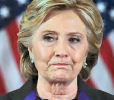

 Whatever the Left and Right spins, I have my own view on Pres. Trump's firing FBI Director Jim Comey.
Whatever the Left and Right spins, I have my own view on Pres. Trump's firing FBI Director Jim Comey. Article by Prof. Marcello Ferrada de Noli, Chairman, Swedish Doctors for Human Rights –SWEDHR. First published at
Article by Prof. Marcello Ferrada de Noli, Chairman, Swedish Doctors for Human Rights –SWEDHR. First published at 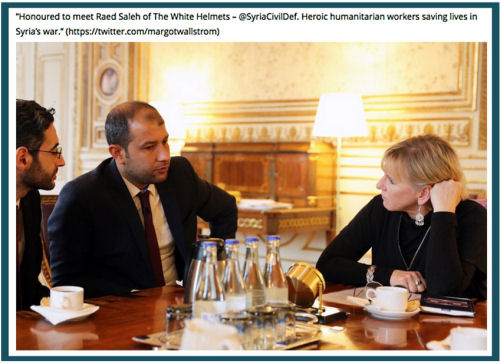
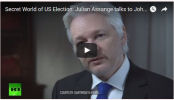
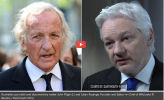 It is Mrs Hillary Clinton who should be in prison, not Julian Assange. For anyone who is still confused about what on earth Wikileaks has demonstrated about Hilary Clinton, watch this very clear interview by Australia's most famous independent Australian journalist, John Pilger and check the transcript below the video. Assange makes perfectly clear the association between Saudi Arabia and ISIS and Saudi Arabia and the Clinton Foundation. It shows that Hillary Clinton, whilst Secretary of State (!), knew and knows that the Saudi Arabian and Qatar governments were and are funding ISIS. This relationship with terrorism has been going on for years. The Australian Government and opposition must also know this. And, the Australian government, by not getting Assange safely back home is spectacularly failing its obligations to protect its own citizens from persecution. Our government is a cowardly lackey to the United States and the opposition and the Greens are just as bad because they say nothing about this. Our press protects this collusive silence. Assange is without doubt a courageous world figure and an Australian hero, but without Australia's intervention, Assange risks being thrown into a dungeon, like Chelsea Manning - with a mockery trial in the United States, should he step outside the Ecuadorian Embassy. Transcript inside, first published on RT at
It is Mrs Hillary Clinton who should be in prison, not Julian Assange. For anyone who is still confused about what on earth Wikileaks has demonstrated about Hilary Clinton, watch this very clear interview by Australia's most famous independent Australian journalist, John Pilger and check the transcript below the video. Assange makes perfectly clear the association between Saudi Arabia and ISIS and Saudi Arabia and the Clinton Foundation. It shows that Hillary Clinton, whilst Secretary of State (!), knew and knows that the Saudi Arabian and Qatar governments were and are funding ISIS. This relationship with terrorism has been going on for years. The Australian Government and opposition must also know this. And, the Australian government, by not getting Assange safely back home is spectacularly failing its obligations to protect its own citizens from persecution. Our government is a cowardly lackey to the United States and the opposition and the Greens are just as bad because they say nothing about this. Our press protects this collusive silence. Assange is without doubt a courageous world figure and an Australian hero, but without Australia's intervention, Assange risks being thrown into a dungeon, like Chelsea Manning - with a mockery trial in the United States, should he step outside the Ecuadorian Embassy. Transcript inside, first published on RT at 
 On Friday 9th September 2016, Hillary Clinton called people who would vote for Donald Trump, “racist, sexist, homophobic, xenophobic, Islamaphobic.” Now, where have we heard those words together before? Ah, yes, from Moveon.org,
On Friday 9th September 2016, Hillary Clinton called people who would vote for Donald Trump, “racist, sexist, homophobic, xenophobic, Islamaphobic.” Now, where have we heard those words together before? Ah, yes, from Moveon.org, 

 Suspicious circumstances have been denied by the police but this very successful lawyer, John Jones, QC, who has been involved in trying to save Gadaffi's son from execution as well as in protecting Assange, who is promising to reveal evidence that will see Mrs Clinton behind bars, somehow was struck and killed by a train - at the age of 45. There is very little information about this. "Disturbing news since the DNC made a public TV announcement that Julian Assange should be assassinated! Julian plans to leak a Hillary CLinton email in October before the US presidential election, that aims to put Hillary CLinton behind jail bars," writes MLordandGod.
Suspicious circumstances have been denied by the police but this very successful lawyer, John Jones, QC, who has been involved in trying to save Gadaffi's son from execution as well as in protecting Assange, who is promising to reveal evidence that will see Mrs Clinton behind bars, somehow was struck and killed by a train - at the age of 45. There is very little information about this. "Disturbing news since the DNC made a public TV announcement that Julian Assange should be assassinated! Julian plans to leak a Hillary CLinton email in October before the US presidential election, that aims to put Hillary CLinton behind jail bars," writes MLordandGod.  What are we to make of Hillary Clinton's emails, recently revealed by Wikileaks? Here we examine the first two that were released. "In my view Clinton is as mad as a cut snake. You will see through these documents that the emphasis is entirely on Israel's interests, not America's, and whatever she thinks they are not the same. Of course she is completely in the hands of the Zionist lobby, as was Australia's recent Prime Minister Gillard, who lent her services to the Clinton campaign. But then Clinton is in the hands of anyone with money and the power to swing votes. She talks of Israel's security dilemma. Well, that's a good one: a state with an estimated 200-400 nuclear weapons (yes, a couple would be enough) facing states without even one has a security dilemma? ..." (Earth to Earth, Turkey.)
What are we to make of Hillary Clinton's emails, recently revealed by Wikileaks? Here we examine the first two that were released. "In my view Clinton is as mad as a cut snake. You will see through these documents that the emphasis is entirely on Israel's interests, not America's, and whatever she thinks they are not the same. Of course she is completely in the hands of the Zionist lobby, as was Australia's recent Prime Minister Gillard, who lent her services to the Clinton campaign. But then Clinton is in the hands of anyone with money and the power to swing votes. She talks of Israel's security dilemma. Well, that's a good one: a state with an estimated 200-400 nuclear weapons (yes, a couple would be enough) facing states without even one has a security dilemma? ..." (Earth to Earth, Turkey.)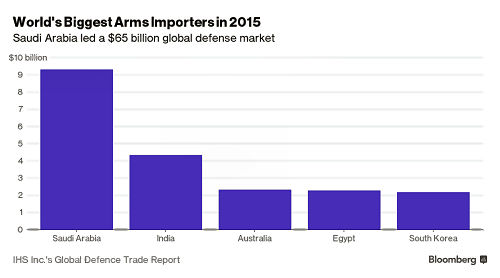
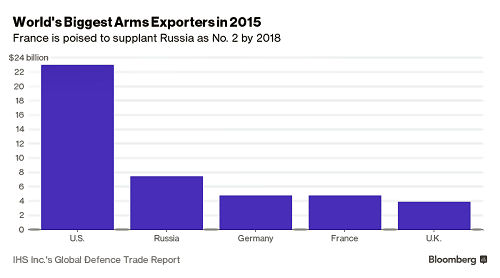

 Candobetter.net recently received a review copy of Hillary Clinton’s Hard Choices, Simon & Schuster, 2014. Curious, I opened it at the chapter on “Syria: A wicked problem.” It was interesting to have a document from the horse’s mouth, or the US Secretary of State, Hillary Clinton. Her style as a US Secretary of State dealing with foreign affairs reminded me of an old-fashioned psychiatrist’s unimaginative confirmation of problems in any patient they are sent, where, even if the patient is quite sane, she’s going to find them insane. Note: Some clarificatory changes have been made to text since yesterday's first publication.
Candobetter.net recently received a review copy of Hillary Clinton’s Hard Choices, Simon & Schuster, 2014. Curious, I opened it at the chapter on “Syria: A wicked problem.” It was interesting to have a document from the horse’s mouth, or the US Secretary of State, Hillary Clinton. Her style as a US Secretary of State dealing with foreign affairs reminded me of an old-fashioned psychiatrist’s unimaginative confirmation of problems in any patient they are sent, where, even if the patient is quite sane, she’s going to find them insane. Note: Some clarificatory changes have been made to text since yesterday's first publication. 
Recent comments